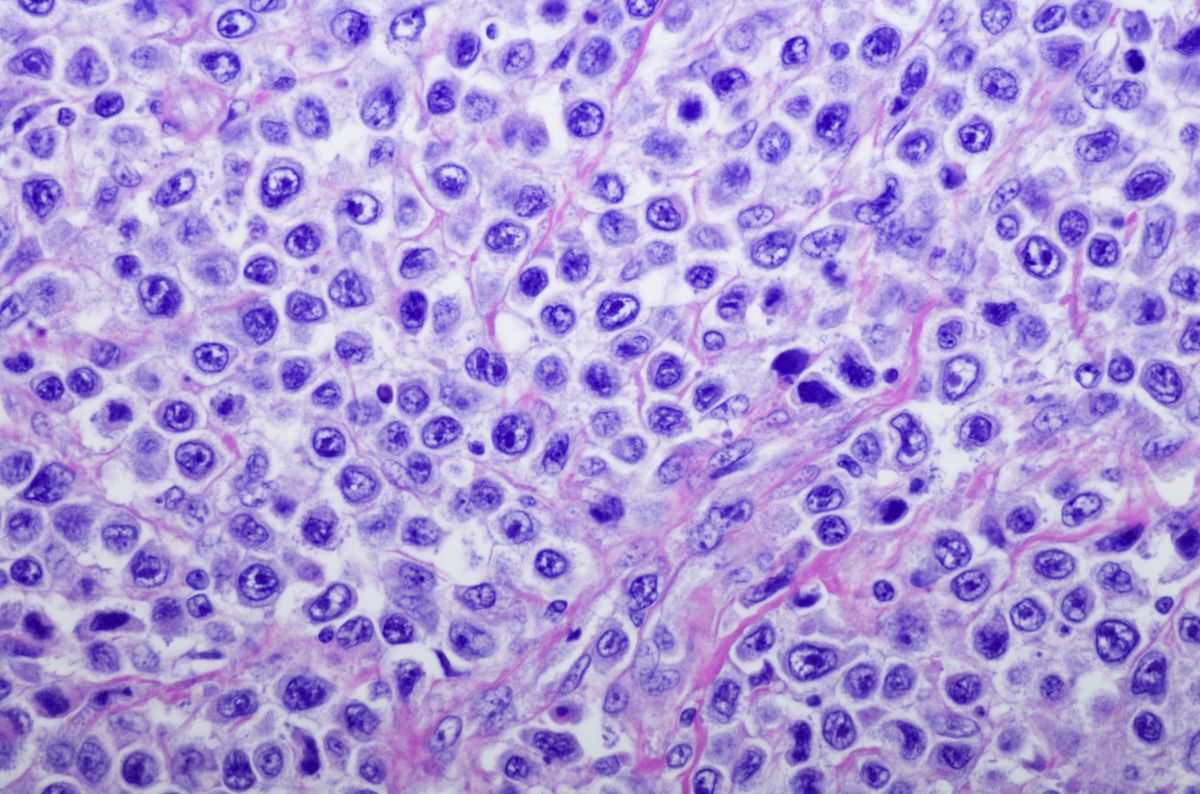
Azacitidine plus CHOP was a “safe and active regimen” in patients with peripheral T-cell lymphoma (PTCL), including those with the T-follicular helper phenotype (PTCL-TFH), according to a recent study.
Jia Ruan, MD, PhD, of the Meyer Cancer Center at Weill Cornell Medicine and New York Presbyterian Hospital and colleagues conducted the phase II clinical trial and published their findings in Blood.
“The treatment shows promise for this T cell lymphoma subtype, and we look forward to seeing how it performs in a larger clinical trial,” Dr. Ruan said in a news release.2
It was important to conduct the study of this regimen because PTCL-TFH has “recurrent mutations affecting epigenetic regulators, which may contribute to aberrant DNA methylation and chemoresistance,” Dr. Ruan and colleagues wrote.
The trial evaluated azacitidine plus CHOP as an initial treatment in patients with PTCL. The patients received oral azacitidine 300 mg daily for seven days before the first cycle of CHOP, and for 14 days before cycles two through six of CHOP.
The study’s primary endpoint was the end-of-treatment complete response (CR) rate. The study’s secondary endpoints included safety and survival, and the researchers performed correlative studies to assess mutations, gene expression, and methylation in tumor samples.
The CR rate was 75% in the 20 patients who were evaluable, with a CR rate of 88.2% in the 17 evaluable patients with PTCL-TFH.
“Although there was no placebo or standard-treatment comparison group, end-of-treatment [CR] rates for PTCL patients treated with standard chemotherapy only, such as CHOP-based regimens, are usually in the 30-40 percent range,” officials said in the news release.
The two-year progression-free (PFS) survival rate for all patients was 65.8%, while it was 69.2% in patients with PTCL-TFH. The two-year overall survival (OS) rate for all patients was 68.4%, while it was 76.1% in those with PTCL-TFH.
These results are “consistent with the idea that adding azacitidine to standard chemotherapy is safe and more effective” for patients with PTCL-TFH, Dr. Ruan said in the news release.
In correlative studies, Dr. Ruan and colleagues detected TET2 mutations in 76.5% of patients, RHOA mutations in 41.1%, DNMT3A mutations in 23.5%, and IDH2 mutations in 23.5%. They reported TET2 mutations were significantly associated with CR (P=.007), “favorable” PFS (P=.004), and OS (P=.015) outcomes.1 However, DNMT3A mutations were associated with an “adverse” PFS (P=.016).
Additionally, the researchers reported that azacitidine priming “contributed to the reprograming of the tumor microenvironment by upregulation of genes” related to apoptosis (P<.01) and inflammation (P<.01).
Grade 3 to 4 hematologic toxicities were “mostly” neutropenia (71%), with febrile neutropenia being “uncommon” (14%).1 Nonhematologic toxicities included fatigue in 14% and gastrointestinal symptoms in 5%.
The study’s authors are now working with colleagues across the country to evaluate azacitidine plus standard chemotherapy in a clinical trial that is expected to include more than 150 patients with different subtypes of PTCL and is scheduled for completion by 2026.
“This safe and active regimen is being further evaluated in the ALLIANCE randomized study A051902 in CD30-negative PTCL,” Dr. Ruan and colleagues wrote.
References
- Ruan J, Moskowitz A, Mehta-Shah N, et al. Multicenter phase 2 study of oral azacitidine (CC-486) plus CHOP as initial treatment for PTCL. Blood. 2023;141(18):2194-2205. doi:10.1182/blood.2022018254
- Adding epigenetic drug to standard chemotherapy was effective in pilot study for T-cell lymphoma. EurekAlert! Accessed May 12, 2023. https://www.eurekalert.org/news-releases/988314






 © 2025 Mashup Media, LLC, a Formedics Property. All Rights Reserved.
© 2025 Mashup Media, LLC, a Formedics Property. All Rights Reserved.